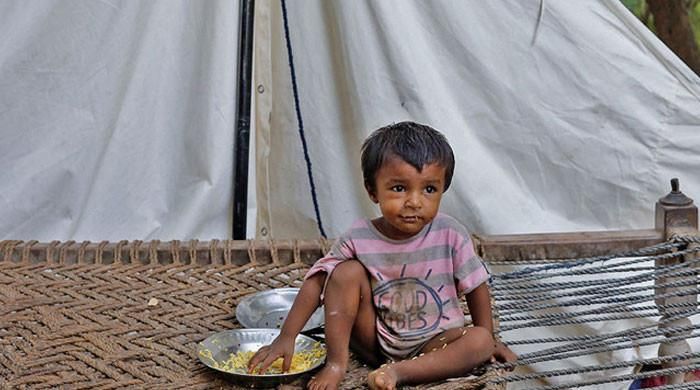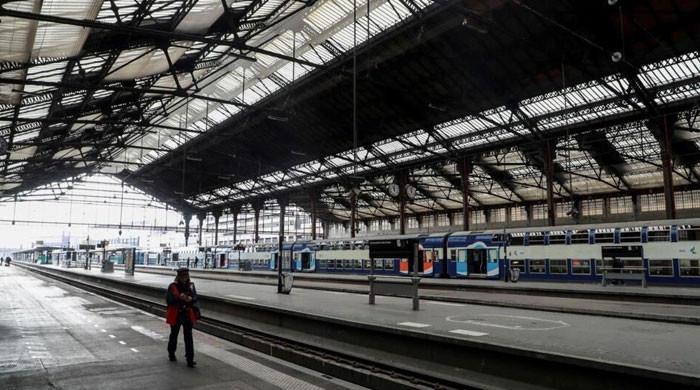Every day we hear stories about how people live and how they die. In homes across the country, there are families surviving on just roti and water and almost nothing else to eat.
Others have made tea a staple food in their homes, for both children and adults. Naturally, lack of nutrition will lead to further stunting and wasting in a country where at least 50% of children are already stunted and wasted.
All this is happening in a country that is still considered predominantly agricultural, but which is so poorly managed that there are reports of wheat rotting in flooded fields, partly because there is not enough space to store it and partly because the government, in its profound wisdom, decided to import wheat from Ukraine despite forecasts of a bumper harvest at home.
The stories about sugar cane are even more well-known: farmers are encouraged to grow it even though the mills do not have space to store it. The result is increased exports, as mill owners earn more money as sugar magnates often buy from farmers at lower prices.
Elsewhere, tomatoes are left to rot or used to feed livestock because there is no efficient way to get them to markets. Similar stories lead to supply chain disruptions as food does not reach people on time or at affordable prices. The same problem affects the cultivation of lentils, a staple food in many households. The product is not grown in sufficient quantities domestically and therefore must be imported, mainly from Canada.
This is despite the fact that regions like Jacobabad and parts of Rajanpur offer the perfect climate for lentil cultivation. There should be no need for imports. Yet, most of us consume imported lentils because we have no other option.
When it comes to nutrition, it's important to start at the beginning. A much-needed effort to create a breast milk bank for premature babies or those whose mothers fall ill or die during childbirth in a country where maternal mortality is 186 per 100,000 live births has been rejected by clerics.
Approximately 50% of women suffer from varying degrees of malnutrition and are often unable to meet their nutritional needs during pregnancy, increasing the risk of complications such as low birth weight and premature birth, necessitating the use of milk banks to meet the nutritional needs of their babies.
Following initial approval from at least some institutions, clerics now argue that a milk bank could lead to complications at the time of marriage, such as children who have been fed by one mother getting married. Doctors who have worked for more than a decade to set up the milk bank and other experts argue that an entry in Nadra's database could easily prevent such an event from occurring.
As hunger grips more and more homes, leading in some cases to desperate measures such as removing children, and especially girls, from school, we wonder why people are not taking to the streets to protest.
There are protests of some kind in many places. Incidents such as the theft of mobile phones, especially in Karachi but also in other urban centres, are a sign of the desperation of people who need to eat. So are the robberies that occur in houses where weddings are held, as the criminals know that they can get jewellery there.
The situation shows no signs of improving: Pakistan ranks 99th on the Global Hunger Index and is one of five countries where stunting rates are increasing.
But we don't see people taking to the streets. Why? In other countries like Brazil and other African nations, people have been protesting long before things reached the current situation in Pakistan. There may be multiple responses. It is possible that people have become apathetic and now believe that nothing can help them. But this is also a flawed argument.
After all, there have been protests where people have burned hugely inflated utility bills that they cannot pay. There have also been protests over food due to the lack of media coverage, which has discouraged people from going out more often.
But perhaps the most important factor is the lack of a vanguard of any kind. There is no political party that takes up the issue as a major part of its agenda. If such a party or group existed, it would easily have organised protests.
While rioting is not desirable, in some cases it may be the only response rather than allowing infants and young children to starve or mothers to save their food so other family members can eat.
The situation is certainly desperate. Yet ministers continue to drive luxury cars and lead lifestyles that would put many leaders in much more developed countries to shame. After all, Scandinavian prime ministers and even monarchs cycle to work almost every day. Some frugality on the part of our leaders is vital to send the right message and encourage property magnates, corporations and other people with wealth and influence to follow suit.
This is not happening and the danger is that Pakistan will eventually explode into an unmanageable situation. For now, there may not be many signs that this will happen, but it seems increasingly clear by the day that people will have no other choice. We already see protests in the peripheries, such as those in Baluchistan for the rights of the people there and in Gilgit-Baltistan. The continent will soon follow suit.
Young people in particular, who make up the majority of the population, are visibly angry and distressed. With a government that seems unable or unwilling to listen to the still silent cries of the disadvantaged, the only option is to take more violent measures to prevent the situation from getting even worse.
After all, the International Monetary Fund has never helped countries facing difficulties like those faced by Pakistan. In fact, it is known for demanding even tougher measures to prevent aid from being offered to impoverished people.
We have seen too much misery already. The question that needs to be answered is how long this can last. Surely the answer is that it has lasted so long and that people will realise that they must react in one way or another.
The author is a freelance columnist and former newspaper editor. She can be contacted at: [email protected]
Disclaimer: The views expressed in this article are those of the author and do not necessarily reflect the editorial policy of Geo.tv.
Originally published in The News












